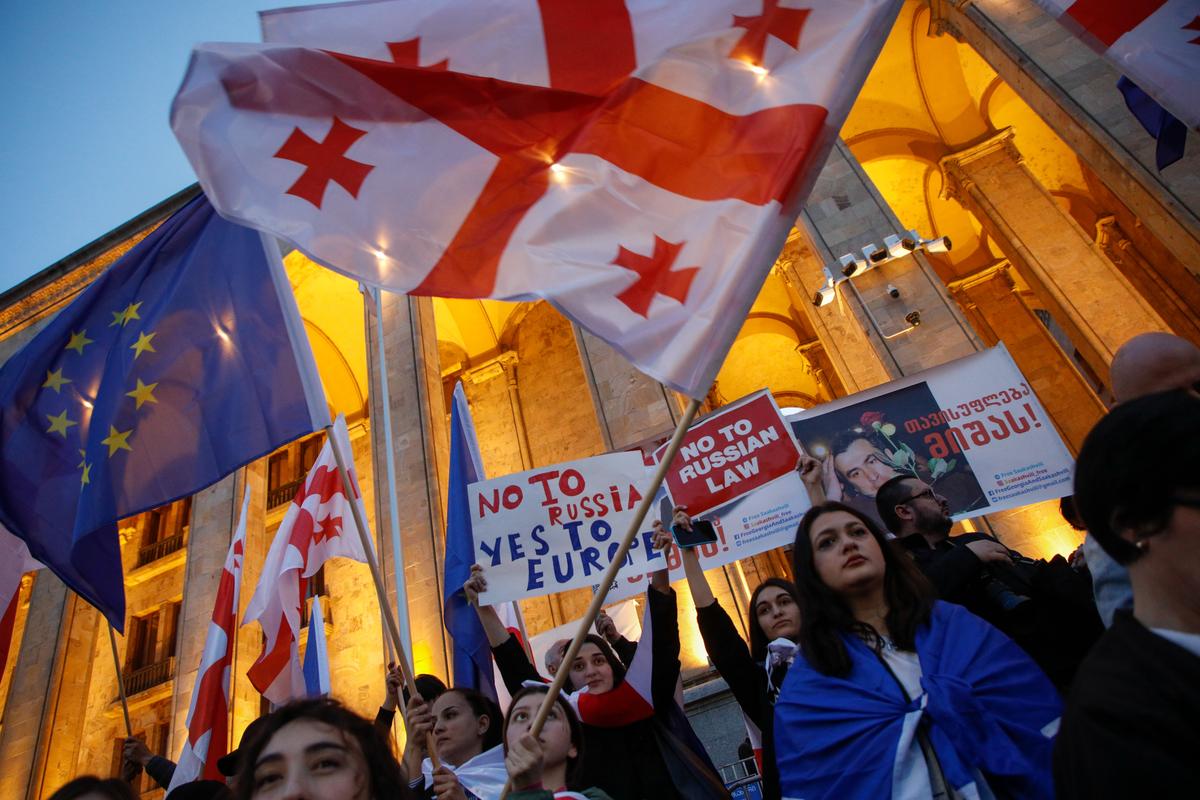
Protesters in front of Georgia's parliament building at a rally against the proposed "foreign agent" law, Tbilisi, Georgia, 15 April 2024. Photo: EPA-EFE/DAVID MDZINARISHVILI
Thousands of protesters gathered outside the parliament building in the Georgian capital Tbilisi on Monday evening to protest against the government’s renewed attempt to pass controversial new legislation that is strikingly similar to Russia’s notorious foreign agent law.
Footage showed protesters waving Georgian and European Union flags and chanting “no to the Russian law” at the rally, which Reuters reported was attended by over 5,000 people.
Lawmakers had gathered in Georgia’s parliament earlier on Monday to discuss the law, with footage emerging of opposition MP Aleko Elisashvili punching the leader of the ruling Georgian Dream party Mamuka Mdinaradze in the face as he spoke at the session, provoking a mass brawl between several legislators. Elisashvili was reportedly later greeted with cheers by protesters outside parliament.
Georgia’s Interior Ministry said in a statement that 14 people had been arrested during Monday evening’s protest for having violated public order and failing to obey police orders. It also said that one Interior Ministry employee had been injured “as a result of the violent actions of the protestors”.
If introduced, the proposed law would oblige NGOs that receive more than 20% of their funding from overseas to register as “agents of foreign influence”. It has been labelled the “Russian law” by its opponents due to its similarity to Russia’s foreign agent law, which has been used by the Kremlin to crack down on dissent.
The ruling Georgian Dream party, often accused of being “pro-Russian” by critics, abandoned a previous attempt to pass the law in March 2023 following widespread protests. Earlier in April, the European Union expressed its “regret” that the Georgian government was again attempting to pass the law despite having vowed to “unconditionally withdraw” it.
The country’s president Salome Zourabichvili expressed her support for Monday’s rally in a tweet, praising protesters for “defending their European future” and saying that Georgia would “not surrender to resovietisation”, while former president Mikheil Saakashvili wrote on Facebook that the time had come for Georgians to “unite and attack”.
